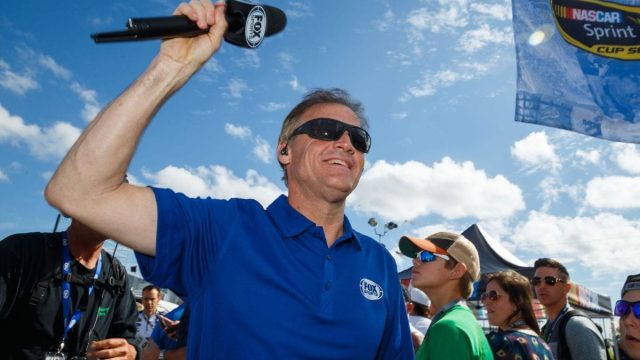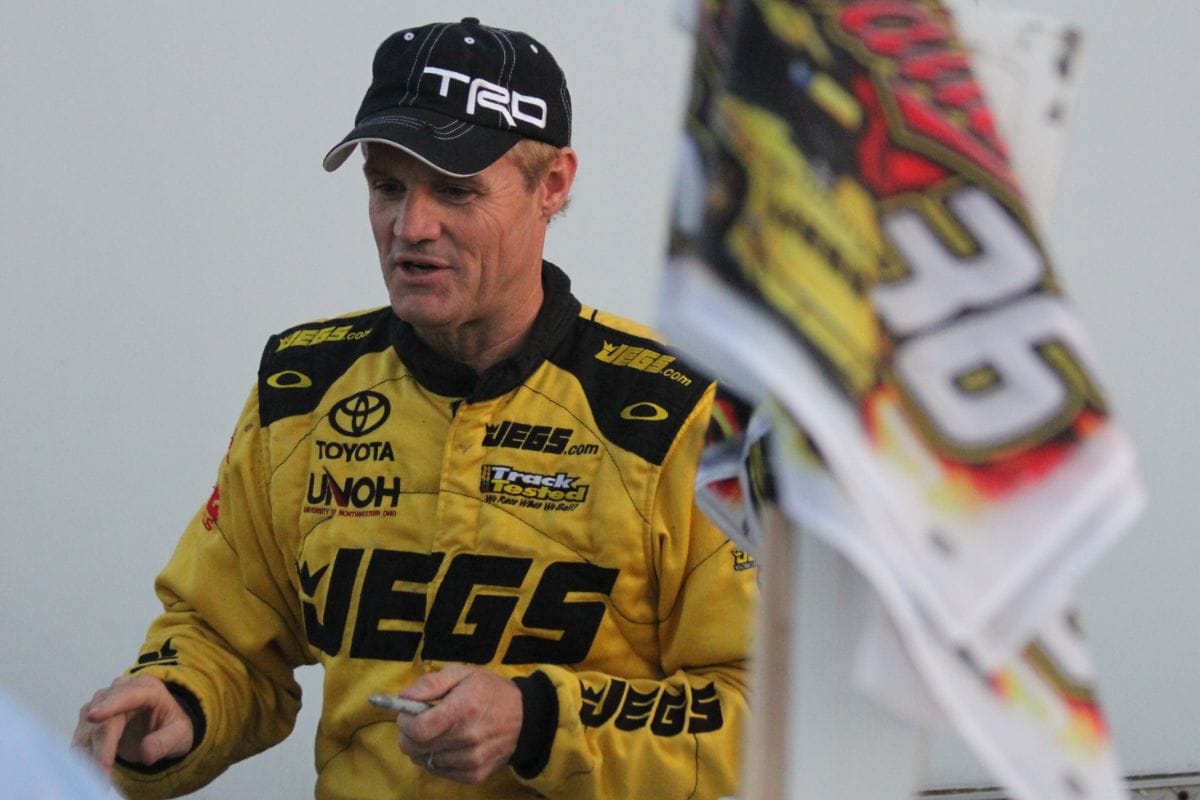Kenny Wallace Boycotts Summer Olympics: Kenny Wallace‘s recent decision to boycott the Summer Olympics has stirred controversy within the NASCAR community and sparked a broader dialogue on athlete activism and the ethical responsibilities of sporting organizations. His stance raises critical questions about the integrity of competitive sports and the treatment of athletes, particularly given the ongoing controversies surrounding the upcoming 2024 Olympics. As Wallace challenges traditional loyalties, the implications of his actions extend beyond NASCAR, prompting a reevaluation of values within all sports. What might this mean for future athlete advocacy and the structure of competitive events?
Kenny Wallace boycott the Summer Olympics
Key Highlights
- Kenny Wallace’s boycott of the Olympics highlights growing athlete activism and dissatisfaction with organizational issues in sports.
- His decision reflects a deep-rooted passion for competitive sports overshadowed by management failures and logistical concerns.
- Wallace’s stand resonates with broader calls for accountability and transparency in the Olympic Games.
- The controversy surrounding the 2024 Olympics, including inclusivity issues and athlete representation, aligns with Wallace’s concerns.
Kenny Wallace’s Decision to Boycott the Olympics
In a notable declaration during a recent episode of Coffee with Kenny, NASCAR veteran Kenny Wallace has resolutely chosen to boycott the Summer Olympics, citing dissatisfaction with the event’s organizational issues. This decision highlights a growing sentiment among athletes and fans similarly, reflecting concerns over the management of one of the world’s most prestigious sporting events.
Wallace’s statement, “They screwed up at the start,” hints at a deeper malaise affecting the Olympics, suggesting that initial missteps have had a cascading effect on the overall trustworthiness and execution of the event.
While Wallace intentionally refrained from linking his boycott to political motivations, his move resonates within a broader context of athlete activism and accountability. The organizational challenges he references may include logistical failures, safety concerns, or the perceived prioritization of commercial interests over athlete welfare.
Such factors have sparked discussions about the integrity of the games and the responsibility of organizers to uphold the values of sportsmanship and fair competition.
Wallace’s decision also highlights the delicate balance athletes must navigate between their passion for sports and their expectations of the platforms on which they compete. By opting out, he sends a powerful message that athletes are not merely participants but stakeholders in the integrity of their events.
Kenny Wallace’s Perspective on Competitive Sports
Kenny Wallace’s deep-rooted passion for competitive sports is evident in his desire to witness excellence among the world’s top athletes. He expresses a longing to see who truly excels in disciplines like running and swimming during the Summer Olympics. His enthusiasm for competition transcends mere entertainment; it reflects a profound appreciation for the dedication and skill required to achieve greatness in diverse athletic pursuits.
“I like competition, I wanna see who’s the fastest runner, I wanna see who’s the fastest swimmer…it’s the Summer Olympics (and) I wanna see who’s the best. But on the other hand, I can’t do it.” – Wallace’
Wallace’s perspective emphasizes a fundamental aspect of sports—the quest for superiority. He ardently believes in the spirit of competition, where athletes push the boundaries of their capabilities to emerge victorious. This pursuit of excellence, he argues, is what makes events like the Olympics so enchanting. Athletes train tirelessly, often sacrificing personal and social elements of life to achieve their goals, and Wallace resonates with this level of commitment.
“I do not want to watch those Olympics because I wanna protest. Usually, I just do what I wanna do but, ‘Herman don’t talk about politics; you’ll lose half of your friends’…so I’m not gonna talk about politics…I’m gonna boycott these Olympics. I’m not gonna watch ’em because they screwed up at the start.” – Wallace
“Coffee with Kenny”
1- Boycott the Olympics ?
2- The #PDC
3- @NASCAR IS OFF
4- @WorldofOutlaws are coming the my house.
5- Zack VanderBeek is texting me as i do this 😁 pic.twitter.com/OCLlO3iHU5— Kenny Wallace (@Kenny_Wallace) July 28, 2024
However, this passion is juxtaposed with his decision to boycott the Olympics. His dissatisfaction with the event’s management casts a shadow over his appreciation for competitive sports. While he yearns to witness the pinnacle of athletic ability, he finds that the value of competition is diminished when the organizational aspects fail to meet expectations.
Controversies Surrounding the 2024 Olympics
The growing discontent surrounding the upcoming 2024 Olympics highlights a complex interplay between athletic ideals and societal values, as controversies regarding athlete attire and inclusivity continue to emerge. The announcement by French Sports Minister Amélie Oudéa-Castéra, prohibiting French athletes from wearing hijabs, has ignited considerable backlash. This decision is particularly contentious given France’s large Muslim population, raising questions about inclusivity and cultural sensitivity within the Olympic framework.
View this post on Instagram
Furthermore, the attire designed by Nike for female athletes has drawn criticism for being excessively revealing, a concern voiced by retired athlete Lauren Fleshman. This critique not only emphasizes the importance of comfort for athletes but also highlights broader discussions about body image and representation in sports. U.S. Paralympic athlete Jaleen Roberts has also expressed discomfort with these designs, further amplifying the conversation around athlete well-being and autonomy.
“This mannequin is standing still and everything’s showing… imagine MID FLIGHT.” – Roberts
These controversies reflect a growing tension between traditional sporting values and the diverse identities of athletes. As the 2024 Olympics approach, these issues will surely influence public perception and participation, calling for a reevaluation of the intersection between sport and societal norms. The ultimate challenge lies in fostering an environment that honors both athletic excellence and inclusivity.
Additional Issues and Incidents at the Olympics
Recent incidents surrounding the Olympics have revealed a series of challenges that extend beyond the field of play, raising critical questions about governance, athlete conduct, and international relations. The implications of these issues not only impact the athletes involved but also the integrity of the Olympic Games as a whole.
- Spy Drone Incident: During practice, Canada’s women’s soccer team encountered a spy drone, leading to the ejection of their head coach and staff members, raising concerns about privacy and security.
- Conduct Violations: Shoko Miyata of Japan withdrew from competition after breaching team conduct rules related to alcohol consumption and smoking, despite being of legal age, igniting discussions on athlete accountability.
- Animal Welfare Allegations: British equestrian Charlotte Dujardin’s withdrawal due to allegations of horse mistreatment highlights the ethical responsibilities of athletes towards their animals.
- Political Exclusions: The ban on Israeli athletes amid the ongoing Gaza conflict demonstrates how geopolitical tensions can intrude upon sporting events, affecting participation and representation.
These incidents serve as reminders that the Olympic Games are not immune to external influences, and they compel stakeholders to reflect on the moral and ethical frameworks that govern the world of sports.
News in Brief: Kenny Wallace Boycotts Summer Olympics
Kenny Wallace’s decision to boycott the Summer Olympics serves as a catalyst for critical discussions surrounding athlete welfare and organizational accountability.
By prioritizing these pressing concerns, Wallace not only challenges existing norms but also inspires fellow athletes to advocate for greater transparency within competitive sports.
This bold stance highlights the necessity for reforms that prioritize athlete safety and ethical treatment, ultimately fostering a more equitable environment in all sporting arenas.
The implications of this decision may resonate well beyond NASCAR.
ALSO READ: Kenny Wallace on Dale Earnhardt and Rusty Wallace: How They Helped Fulfill His NASCAR Dream



